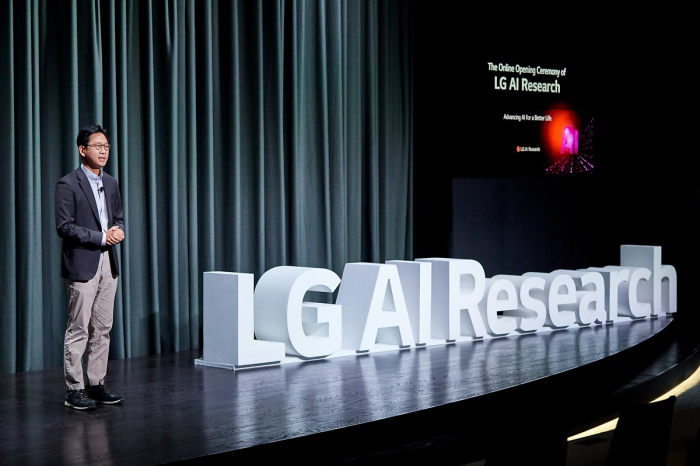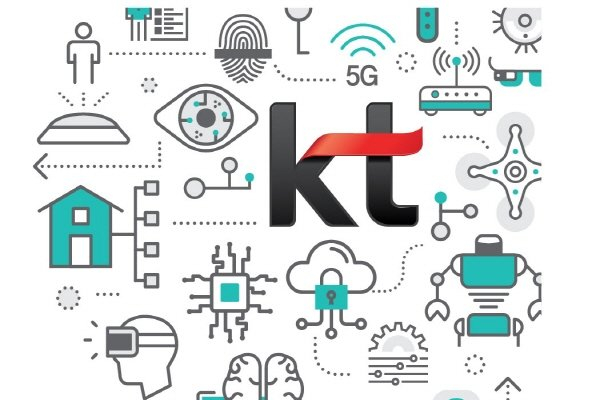Artificial intelligence
S.Korean firms start training AI professionals to address talent shortage
From LG, Samsung to Hyundai and KT, South Korea's leading firms are offering full-time AI education to employees
By Aug 19, 2021 (Gmt+09:00)
3
Min read
Most Read
Samsung steps up AR race with advanced microdisplay for smart glasses


When in S. Korea, it’s a ritual: Foreigners make stops at CU, GS25, 7-Eleven


Seoul-backed K-beauty brands set to make global mark


Maybe Happy Ending: A robot love story that rewrote Broadway playbook


NPS yet to schedule external manager selection; PE firms’ fundraising woes deepen



South Korea’s major business groups have started to foster their own talents in the field of artificial intelligence (AI) to address the widening gap between demand and supply of well-trained AI professionals.
According to the tech industry on Aug. 18, the LG Group is currently running a pilot master’s program under the name of LG AI Graduate School. The program will confer degrees to its first cohort at the end of this year, and applications will be open for employees from all LG affiliates starting from next year. The school offers one-year full-time master’s program for the participating employees.
While the degree is not an official graduate degree approved by the country’s Ministry of Education, those who have successfully completed the program will be treated as master’s degree holders by the LG Group in both credentials and compensation.
LG marks the first case in Korea where a private firm has set up its own graduate-level education program to provide degrees that are deemed equivalent to those granted by academic institutions. The group added that its graduate school in the near future will also launch a more advanced program equivalent to a doctorate degree.
LG Group said that the rigid curriculum allows the employee-students to earn the degree much shorter than the typical two years taken at major universities. The participating employees every week are required to take 40 hours of classes in computer vision, natural language processing (NLP), data structures and algorithms.
“LG will continue to secure a large pool of well-trained AI researchers from both in and outside the group,” said an LG Group official.
LG’s long-term plan to take the lead in the AI sector took off last year by establishing LG AI Research, an AI think tank, under LG Management Development Institute. LG last December said that it will invest 200 billion won ($170 million) in the think tank to fast forward the group’s digital transformation and nurture 1,000 AI talents by 2023.
“Depending solely on external sources of talent, such as universities, had clear limits. The gap between industry needs and what graduate students researched at the academic institutions were often extremely wide,” said LG Group.
SIMILAR MOVES BY INDUSTRY PEERS
LG is not the only one among the major conglomerates in Korea that is trying to become self-sufficient in securing AI talents.
Hyundai Motor Group’s auto components maker Hyundai Mobis also operates a five-month full-time AI training program whose curriculum includes AI algorithm theories and data processing. Another unit Hyundai Motor Co. also runs a five-month full-time boot camp on big data analysis.
Likewise, Samsung Electronics Co. runs a three-month program with a curriculum designed by the top professors at Pohang University of Science and Technology (POSTECH), Yonsei University and Sogang University.
The telecom giant KT Corp.’s focus is helping its employees with no relevant background make successful career transitions into AI, through its six-month full-time program. The company highlighted that the program has delivered numerous success cases from all ages, from a 55-year-old former customer service (CS) manager who is now developing AI models to detect network errors, to a 26-year-old network operator who is now working on bio-AI solutions.

KT said that 64 employees completed the program as its first cohort, while the second cohort had 76 graduates. The company has recently started educating the third cohort with a similar size.
Industry experts note that more South Korean firms will start to educate their own employees. According to Software Policy & Research Institute, 76.3% of South Korean software firms are in more need of well-trained talents that can develop new software. The experts note that the supply of talents by the leading academic institutions is insufficient compared to the skyrocketing demand.
“There are only around 400 students every year who receive graduate degrees in AI-related fields from about 10 universities in the country, most of which are newly established ones. Plus, some graduates are going overseas for career opportunities or further education,” said Professor Seo Jung-yun of Sogang University Department of Computer Science.
Write to See-eun Lee at see@hankyung.com
Daniel Cho edited this article.
More to Read
-
 AI investmentLG Group to invest $106 mn in advanced AI tech development
AI investmentLG Group to invest $106 mn in advanced AI tech developmentMay 17, 2021 (Gmt+09:00)
2 Min read -
 Artificial intelligenceLG launches AI research think tank for digital transformation
Artificial intelligenceLG launches AI research think tank for digital transformationDec 07, 2020 (Gmt+09:00)
2 Min read
Comment 0
LOG IN


